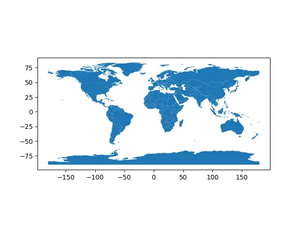Introduction
With data analysis being a cornerstone of modern business and decision-making, Python’s Pandas library has emerged as a powerful tool for manipulating and analyzing structured data. One of the common operations in data analysis is rounding numerical values to a specific precision. This operation is crucial for data cleaning, reporting, and visualization. In this tutorial, we delve deep into the process of rounding values in a Pandas Series to custom precision, covering several approaches from basic to advanced levels.
Basic Rounding in Pandas Series
To begin with simple rounding operations, let’s consider a Pandas Series of floating-point numbers:
import pandas as pd
# Creating a Pandas Series
data = pd.Series([2.718, 3.14159, 1.618, 0.57721, 4.6692])
print("Original Series:\n", data)Now, to round these values to 2 decimal places, you can use the round() method directly on the series:
# Rounding to 2 decimal places
data_rounded = data.round(2)
print("Rounded Series:\n", data_rounded)This operation yields the following output:
Original Series:
0 2.71800
1 3.14159
2 1.61800
3 0.57721
4 4.66920
dtype: float64
Rounded Series:
0 2.72
1 3.14
2 1.62
3 0.58
4 4.67
dtype: float64Moving beyond basic rounding, it’s possible to tailor precision dynamically or based on conditional logic, enhancing flexibility for varied analytical tasks.
Dynamic Rounding Precision
Imagine a scenario where the desired precision of rounding is determined by another Series or list. You can achieve this level of control using the following approach:
# Additional Series with desired precision levels
precision_levels = pd.Series([1, 0, 2, 3, 1])
# Dynamic rounding
data_dynamic_rounded = data.apply(lambda x, y: round(x, y), args=(precision_levels,))
print("Dynamically Rounded Series:\n", data_dynamic_rounded)Due to the nature of the example, the simpler approach illustrated fails due to how arguments are passed in apply(), highlighting a common pitfall. Instead, consider using a more intricate solution or revising the approach for dynamic precision based on real-world data structures and requirements.
Advanced Rounding Techniques
Advancing to more sophisticated usage, one could need to round values based on conditions, such as rounding up or down based on the number’s proximity to a specified threshold, implementing custom rounding logic, or dealing with financial data requiring specific rounding rules.
One possible approach to conditionally rounding numbers involves the numpy library, in conjunction with Pandas:
import numpy as np
# Conditionally round up if > .5, else round down
rounded_conditional = data.apply(lambda x: np.floor(x) if x - np.floor(x) < 0.5 else np.ceil(x))
print("Conditionally Rounded Series:\n", rounded_conditional)This technique effectively demonstrates how custom logic can be incorporated directly into data manipulation workflows. Keep in mind that more complex scenarios might require bespoke functions, likely incorporating aspects of numpy or other libraries to achieve the desired rounding behavior.
Utilizing External Libraries
For scenarios that call for rounding strategies beyond what’s achievable with basic Pandas and numpy functionality – such as financial calculations, statistical rounding methods, or dealing with decimal numbers in a more precise fashion – external libraries may offer the necessary functionality. Investigating libraries like mcmath or decimal could uncover solutions that fit these use cases more appropriately.
Conclusion
Rounding numbers in a Pandas Series can range from simple to highly complex, depending on the specific requirements of the task at hand. The versatility of Pandas, especially when combined with numpy and other numerical libraries, provides a robust toolkit for handling these rounding tasks with precision. While the examples shown here offer a starting point, exploring further into the ecosystem can yield even more powerful and tailored rounding solutions.
